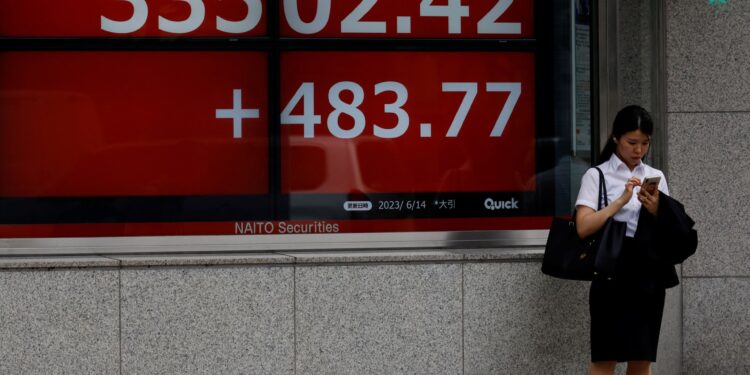8/23/2024–|Last update: 8/23/202407:11 PM (Makkah Time)
Bank of Japan Governor Kazuo Ueda said the bank will continue to raise interest rates if inflation and economic data continue to meet expectations.
“If we are assured that the economy and prices remain in line with expectations, our stance on continuing to adjust the degree of monetary easing will not change,” Bloomberg quoted Ueda as saying.
Asked in parliament about the decline in global markets earlier this month, Ueda pointed to concerns about the state of the U.S. economy as the main catalyst.
Kazuo stressed that he does not intend to rush to raise interest rates, noting the need to monitor the impact of financial market turmoil on inflation at the present time.
The Bank of Japan governor’s statements indicate a relatively strong position that reduces the impact of raising interest rates in Japan on the financial market crisis that occurred in early August, according to Bloomberg, which indicated that Ueda’s statements reflect that market turmoil will not prevent the Japanese central bank from raising interest rates again in the future.
Japanese stock market rebounds
The Japanese Nikkei index ended trading on Friday higher after a volatile session, as traders reacted to the change in tone of the Bank of Japan governor regarding tightening monetary policy in his testimony before parliament.
The Nikkei index closed Friday’s trading up 0.4% to 38,364.27 points after starting the day higher, then falling in the middle of the session, before rising again.
The broader Topix index rose 0.5%.
The yen was also volatile on Ueda’s comments, last trading up about 0.5 percent at 145.65 against the dollar, recouping most of Thursday’s declines.
Markets are awaiting Federal Reserve Chairman Jerome Powell’s speech at the annual Jackson Hole Symposium later today.
Earlier this month, official economic data showed that the Japanese economy grew in the first quarter of the current fiscal year, which began on April 1, for the first time in two quarters.
The Japanese economy grew at an annual rate of 3.1% during the first quarter, compared to a contraction of 3.2% in GDP during the last quarter of the last fiscal year.
The economy also recorded a quarterly growth rate of 0.8% in the last quarter of the fiscal year, compared to a contraction rate of 0.6% in the previous quarter.
Meanwhile, capital spending grew by 0.9% in the first quarter compared to a 0.4% contraction in the last quarter of the last fiscal year.
Consumer spending also increased during the last quarter at a quarterly rate of 1%.



